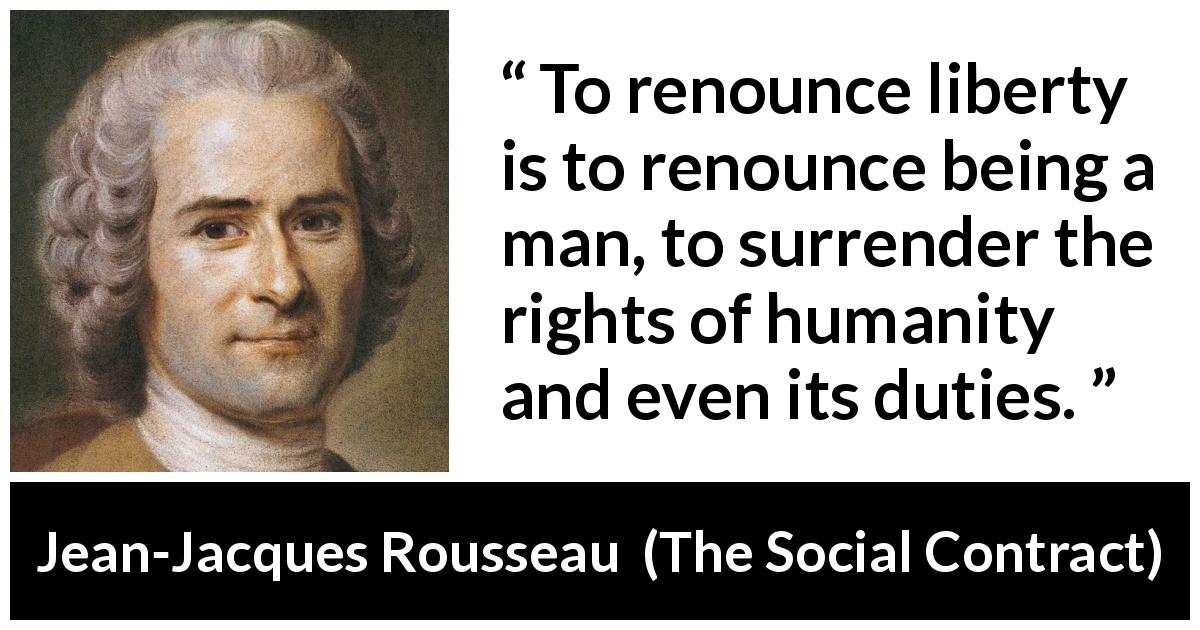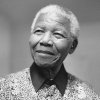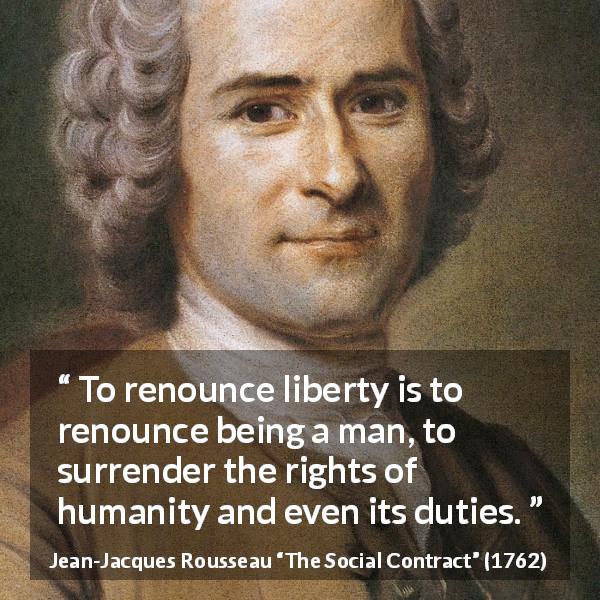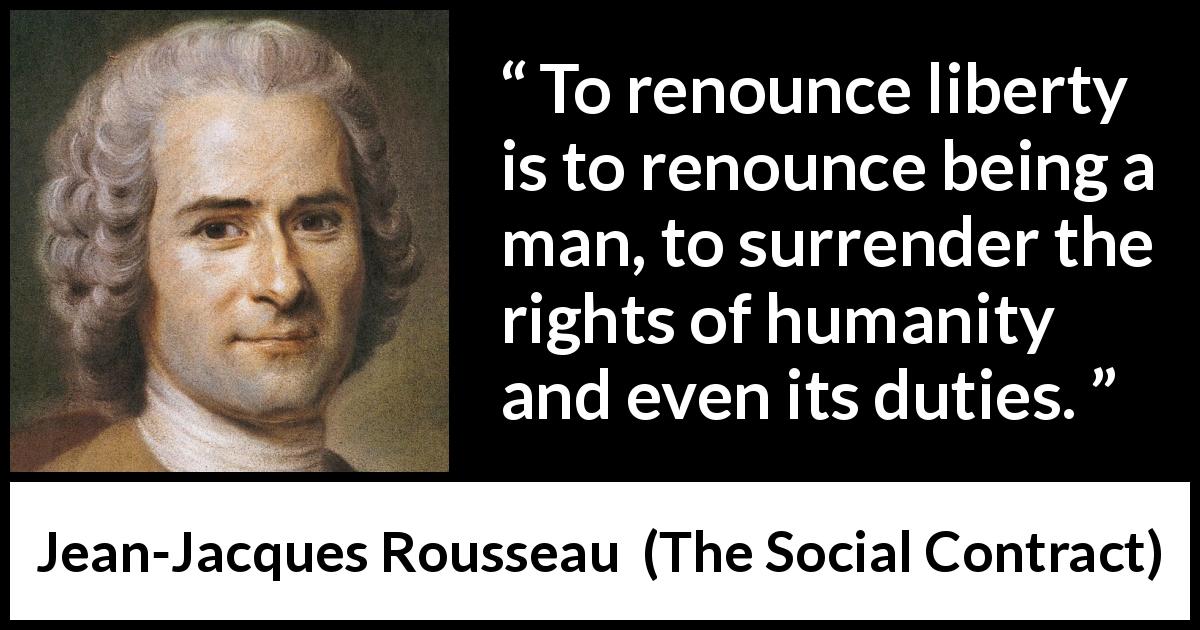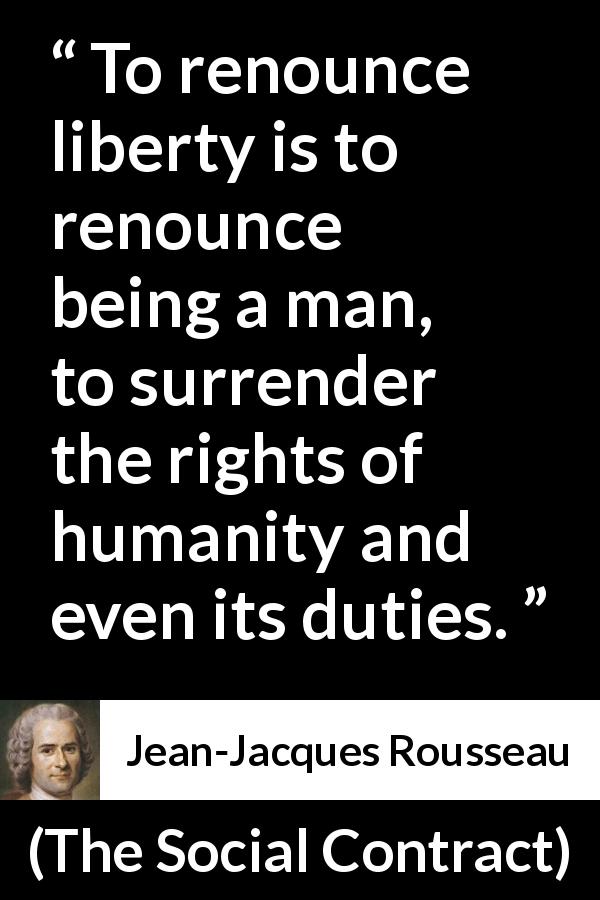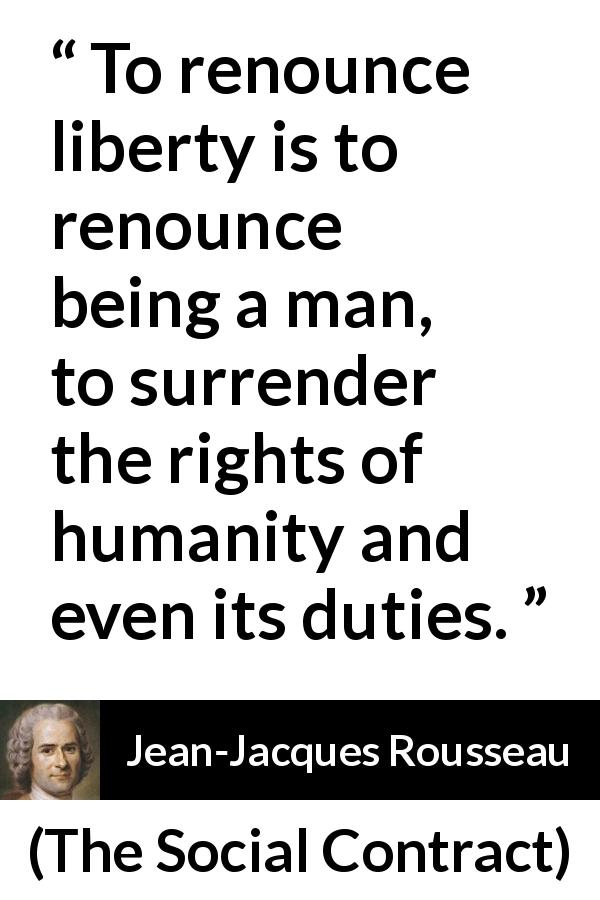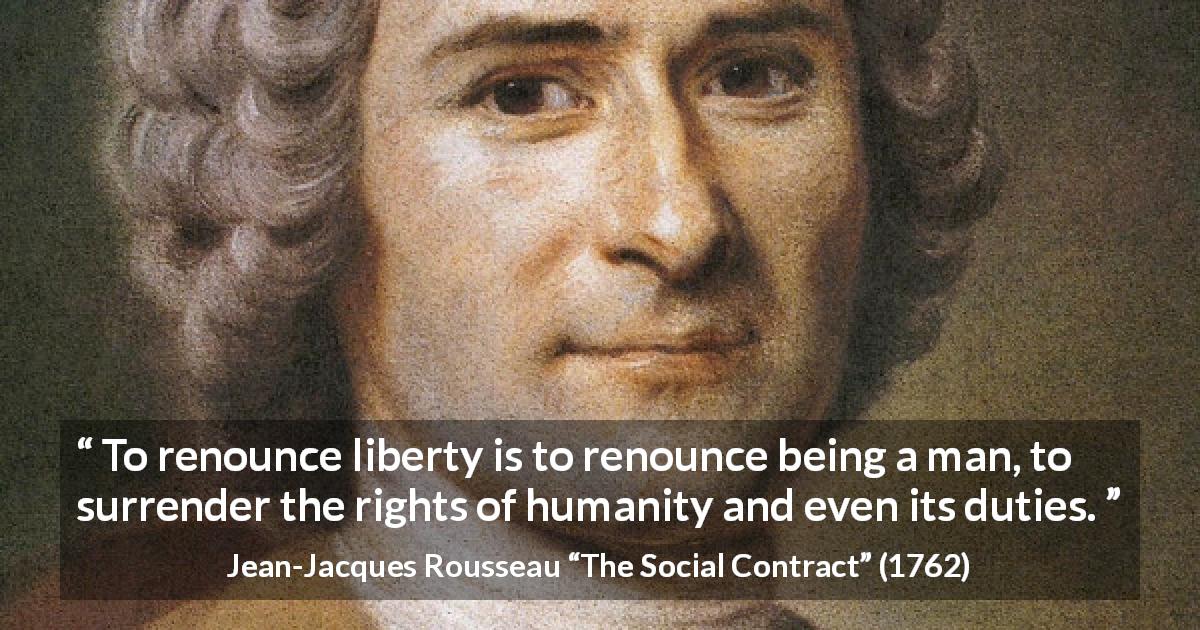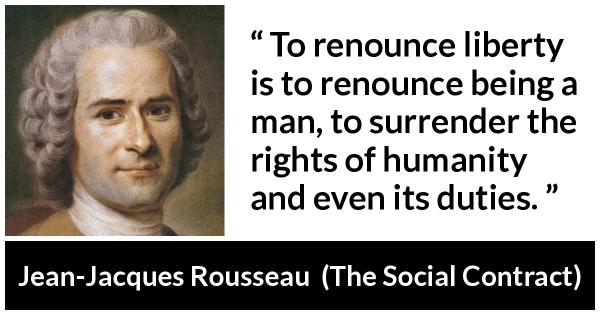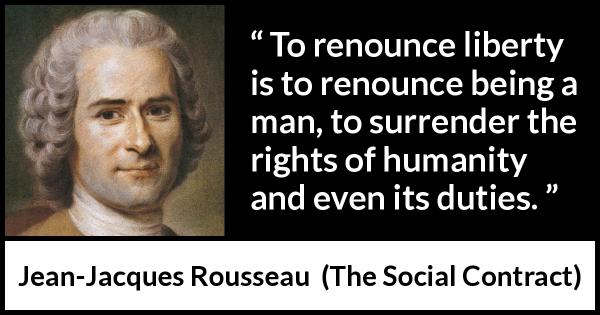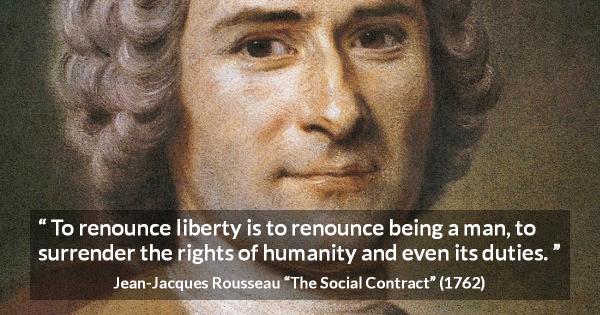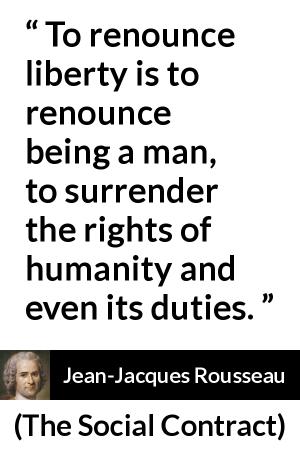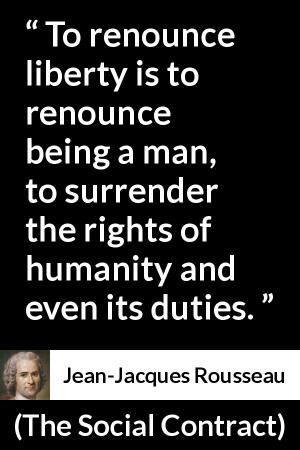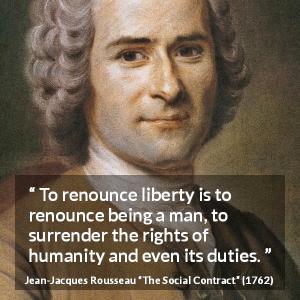“ To renounce liberty is to renounce being a man, to surrender the rights of humanity and even its duties. ”
Jean-Jacques Rousseau, The Social Contract (1762). copy citation
| Author | Jean-Jacques Rousseau |
|---|---|
| Source | The Social Contract |
| Topic | freedom humanity duty |
| Date | 1762 |
| Language | English |
| Reference | Of the Social Contract, or Principles of Political Law, Book I |
| Note | Translated by George Douglas Howard Cole |
| Weblink | https://en.wikisource.org/wiki/The_Social_Contract/Book_I |
Context
“It would therefore be necessary, in order to legitimise an arbitrary government, that in every generation the people should be in a position to accept or reject it; but, were this so, the government would be no longer arbitrary.
To renounce liberty is to renounce being a man, to surrender the rights of humanity and even its duties. For him who renounces everything no indemnity is possible. Such a renunciation is incompatible with man's nature; to remove all liberty from his will is to remove all morality from his acts. Finally, it is an empty and contradictory convention that sets up, on the one side, absolute authority, and, on the other, unlimited obedience.” source
To renounce liberty is to renounce being a man, to surrender the rights of humanity and even its duties. For him who renounces everything no indemnity is possible. Such a renunciation is incompatible with man's nature; to remove all liberty from his will is to remove all morality from his acts. Finally, it is an empty and contradictory convention that sets up, on the one side, absolute authority, and, on the other, unlimited obedience.” source
